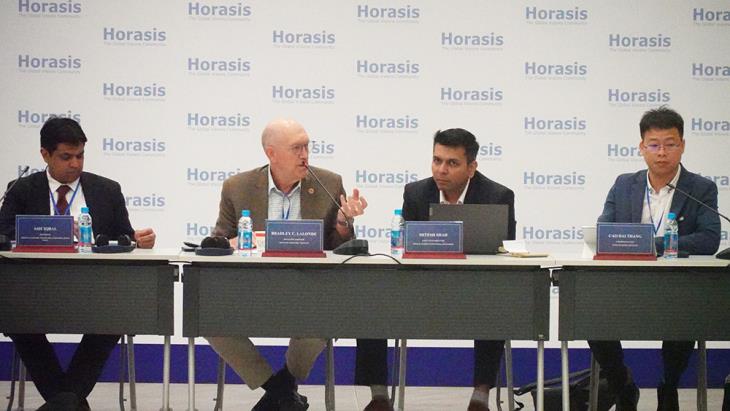According to the speakers, the economies of Asian countries are young and vibrant. The proportion of products such as food, household appliances, electronics, etc. that these countries supply to foreign markets is about 45%. However, these countries also have to import about 45% of products from abroad to meet domestic consumer demand. Therefore, except for countries with independent development strategies, Asian countries need to consolidate supply chains.
Overview of the discussion session
The Asian supply chain consolidation will help countries strengthen their economic cooperation; the supply chain can adapt to all different markets in Asia. However, for the supply chain to be strong, Asian countries should link together within the region first, then expand globally. As for determining whether to consolidate or diversify the supply chain, according to experts, each trend will have its own advantages and disadvantages. Therefore, it should let the market decide which trend is appropriate. According to each national or regional level, the strength of each industry will also have its own appropriate trend.
![]()

Speakers discuss the contents
Asian countries need to increase the use of technology to increase the resilience of supply chains. Specifically, using real-time data analysis technology, cloud data sharing, AI, etc. to optimize supply chain management and efficiency; applying "blockchain" technology to trace origins, increase product transparency, and reduce supply chain risks.
For the supply chain to develop sustainably, it is necessary to provide quality resources for the chain. Therefore, it is necessary to focus on developing education and training in the fields of logistics, network security, etc. to develop the skills of human resources. Companies and businesses need to associate with institutes and universities to ensure input human resources for their companies and enterprises.
At the Discussion session, speakers also raised factors that could affect the structure of the supply chain in the future such as: State policy changes; geopolitical factors; rising prices; disruptions in transportation; global supply shortages and disruptions; lack of supply chain reliability; financial risk factors, etc.
Commenting on the Vietnamese market, the speakers evaluated Viet Nam as one of 7 countries with a lot of cooperation with the United States and one of the leading countries in terms of growth and investment attraction in the region. Besides, Viet Nam has a stable political system. Therefore, Viet Nam is in a particularly good position in the world arena.
Binh Duong is a province with incredibly good infrastructure. This is the factor that will help Binh Duong attract investors. However, Binh Duong needs to further optimize Customs procedures to create more favorable conditions for investors when investing in Binh Duong.